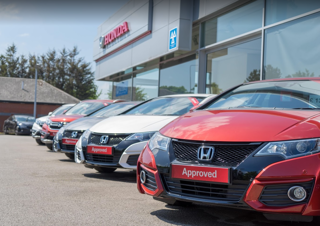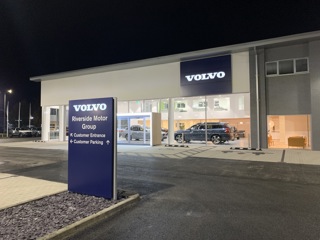The NFDA has published a new consumer-facing car buying guide to help boost market confidence ahead of the crucial September number plate change month for retailers.
It gives practical advice about searching for a new car, test driving and purchasing, as well as outlining the benefits of service plans. (see full guide below)
Sue Robinson, director of the association, said: “Buying a new car from a franchised dealer this September with a 70 registration, motorists will benefit from a wide range of attractive deals and offers. With a wide range of cars available, ranging from the latest petrol and diesel engines to alternative fuel vehicles, consumers will be able to find exactly what they are looking for”.
Strong finance offers will be crucial to drive more buyers into showrooms this September, with flexible terms and 0% deals key to winning sales. (see latest digital edition of AM)
Car sales volumes declined by 48.9% in Q2, according to the Society of Motor Manufacturers and Traders (SMMT), as the COVID-19 coronavirus pandemic delivered a “devastating” impact to trading.
Figures published by the industry body revealed that 1,039,303 vehicles changed hands during the period, leaving the sector 28.7% (2.89m) down year-to-date to the end of June, with 85% (1.16m) of 2020’s volume losses incurred in Q2.
September’s performance will be vital in getting the industry back on track, but an AM poll found that 56% of dealer leaders expect their order take to be lower than normal, with a fifth predicting a 10% drop in sales.
NDFA New Car Buyers Guide:
When searching for a car, there are a number of things to look out for. First, establish your budget, for either for a one-off payment or a monthly payment plan on finance. When comparing deals, use the ‘on-the-road’ price’ (OTR) which manufacturers advertise. This is made up of the basic ex-works price, value added tax, number plate, delivery charges, vehicle excise duty, and first registration fee.
Consumers should consider the following check-list before and after the purchase to make sure you have not overlooked the obvious:
- Will you carry goods or people or both?
- Fuel: internal combustion (petrol/diesel) or alternative fuel (hybrid, plug-in hybrid, battery electric vehicle etc., particularly if you live near or commute through a ‘Low Emission Zone’)?
- Do you make long or short journeys?
- Do you have children?
- Automatic or manual?
- Small engine for economy or larger engine for power?
- What type: hatchback, saloon, sports, estate, SUV (sports utility vehicle) or MPV (multi-purpose vehicle), coupe, convertible?
- Are you worried about depreciation values?
Buying a new car is exciting and by asking yourself the right questions you will make your experience even more enjoyable. Thanks to informative dealer and manufacturer websites, dedicated motoring magazines, as well as videos and reviews, you have access to a lot of useful information before you make the first visit to a dealership to look at and test drive a car. Alternatively, just visit your franchised dealer and ask all the questions you may have.
Remember, it is not just about the car, it is about a car you can live with:
- Is your garage big enough?
- Confirm insurance class and area cost
- Understand fully the deposit terms, conditions of sale, any finance agreement including interest charge, and the trade-in price on your existing car and how long that price can be maintained
- Warranty terms - will there be restrictions?
Test drive
Test drives are the best opportunity to test out a vehicle, however, to comply with Covid-19 safety measures, currently test drives must be carried out unaccompanied and not all dealers can offer this option.
When you test drive, check:
- Is the seating position comfortable? Is there enough headroom? Can you see all the mirrors?
- Can you adjust the seat or steering wheel?
- Check bonnet, doors and boot
- Road-handling, brakes, and steering
If the car you have now tested and the advice you have had from the dealer fulfils your requirements you will now feel more confident about buying the vehicle.
Buying the car
Before buying you should decide how to pay:
- If you plan to pay upfront, you may find restrictions paying by either cash or credit card. Credit cards are often accepted to pay a deposit, but final payment of the balance will require a bank transfer.
- Finance deals let you pay by instalments, spreading the cost over a number of years after which you can trade or keep the car
- Personal Contract Purchase (PCP): If you do not want to buy the vehicle outright you can lease it via PCP. You pay a deposit and then a fixed number of monthly repayments. Once the term is completed you either hand the car back, pay the final settlement payment and keep the car, or use it as part exchange to buy a new car.
- Hire Purchase (HP): With a Hire Purchase plan you pay the deposit upfront and spread the cost of the car over a fixed period. You do not own the vehicle until the final payment is made. Monthly repayments tend to be higher than PCP.
At delivery
- Ensure you are given full familiarisation of the vehicle controls
- Get a copy of the pre-delivery inspection form
- Check driver's instruction book
- Check tax and insurance documents
- Check invoice is completed correctly
After buying
Buying the car is just the beginning of the journey. Remember that your new car will eventually need a service and it is vital you use a reputable dealer when a service or any form of work needs to be carried out on your car.
When you first order the car it is worth asking about a service-plan as the cost of this can be rolled into the car and it is often cheaper than paying for services individually At the dealership, they will be able to advise you on the type of service you need, and point out potential problem areas before they arise.
















Login to comment
Comments
No comments have been made yet.